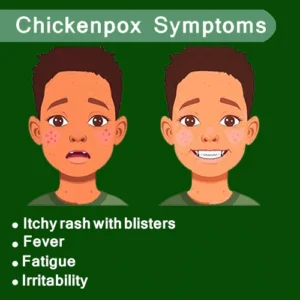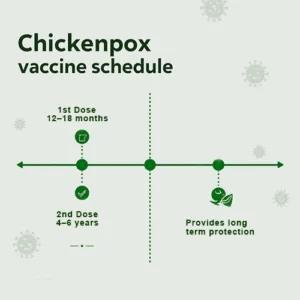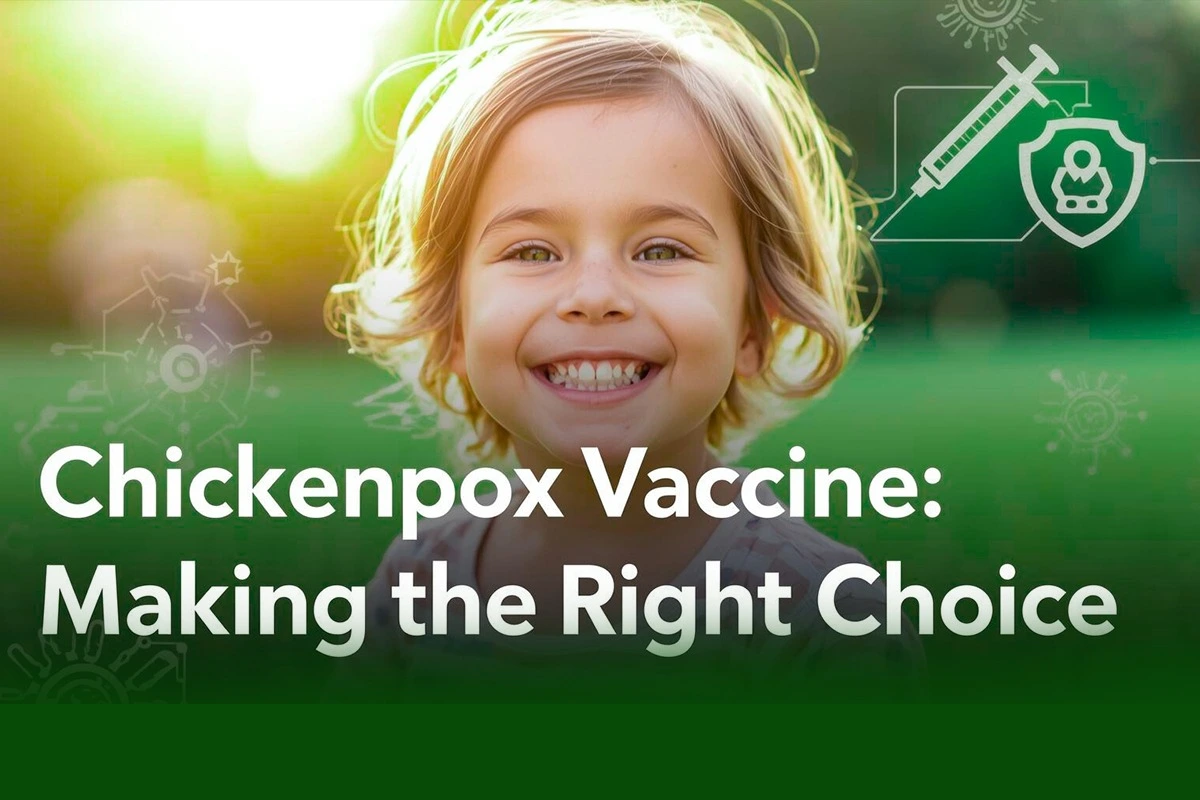Most parents are faced with tough choices regarding the health of their children. Among these choices is whether or not to vaccinate your child against chickenpox (varicella). Although most of us recall our childhood experience with chickenpox as a common childhood disease, the times have changed, and with the success of a safe and effective vaccine, parents are now considering the advantages and disadvantages of immunisation. When you are asking yourself the question, is the chickenpox vaccine right for my child? Here is what you need to know.

Understanding Chickenpox
Chickenpox is a viral infection which is highly contagious and is caused by the varicella-zoster virus. It is also transmitted by contact with blisters or by inhalation of airborne droplets of an infected individual. The typical symptoms are an itchy and blister-like rash, fever, fatigue, and irritability.
Although the majority of children will recover without any complications, in some cases, chickenpox may lead to more severe complications: skin infections, pneumonia, or, in the most unusual cases, brain inflammation (encephalitis). Kids that have weak immunities are especially susceptible, and prevention is a factor to keep in mind.

What Is the Chickenpox Vaccine?
To prevent the varicella-zoster virus from gaining entry, the 1990s-introduced chickenpox vaccine is used. It is a live attenuated vaccine; that is, it contains a (weakened) copy of the virus that trains the immune system to combat infection.
Children normally get two injections of the vaccine:
The initial dose is for 12- to 18-month-olds.
• The second dose at the age of 4-6 years.
This two-dose regimen offers prolonged protection.
The chickenpox vaccine has the following benefits.
1. Protection Against Illness
The greatest advantage here is the fact that vaccinated children have much fewer chances to contract chickenpox. In other situations where a vaccinated child contracts the disease, the symptoms are normally milder and of a shorter duration than those of an unvaccinated child.
2. Elimination of Complications.
Serious complications are rare but are possible with chickenpox. Vaccination minimises the chances of hospitalisation and life-threatening illnesses associated with the virus.
3. Less Shingles in the Future.
Since chickenpox and shingles are caused by the same virus, children who have never been exposed to chickenpox (or vaccinated) may be less at risk of shingles in adulthood.
4. Defending Vulnerable Populations.
As more children are vaccinated, it prevents herd immunity, which protects babies, older adults and those with weakened immune systems from being vaccinated.
Concerns and considerations.
1. Side Effects
As is common with all vaccines, there are slight side effects associated with the chickenpox vaccine, including soreness at the injection site, mild rash, or low-grade fever. Severe reactions are very sporadic.
2. Natural Immunity Argument
Other parents want their child to have chickenpox in the natural course of things because it seems to offer better lifelong protection. But natural infection is associated with the danger of serious complications, which do not occur with vaccination.
3. Cultural/Regional Differences.
Vaccination against chickenpox is mandatory in certain countries and optional in others or not part of the national immunisation programme. This can impact the prevalence of chickenpox in your neighbourhood.
Should your child get the chickenpox vaccine?
The question is usually a matter of risk versus benefit. The vaccine is a safe and effective means of preventing discomfort, absenteeism, and possible complications in most healthy children. Vaccination may be of particular importance should your child have a weakened immune system or should you reside alongside susceptible relatives.
With that being said, the situation of any child is different. The age of your child, his or her medical history and the rate of chickenpox in your area should all contribute to the decision.
Talking to Your GP or Paediatrician.
Your healthcare provider would be a good person to consult before making a decision. They may provide you with personalised recommendations depending on the medical background of your child and your family circumstances. They are also able to give you straightforward information regarding any side effects and answer any questions that you might have concerning the vaccine.
Final Thoughts
Chickenpox could be assumed to be a minor disease that happened to exist in the past, but it is not entirely harmless. The chickenpox vaccination is a relief because you can guarantee your child will not only be spared the pain of the disease but the possible complications as well. The final choice lies with you, but the more you know, the more you can make the right decision about the long-term health of your child.

Leave a Reply